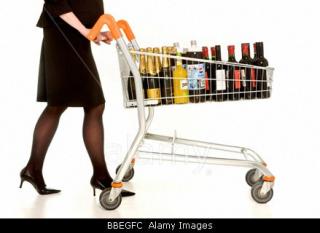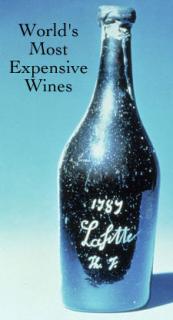Wine writers and critics..
POSTED ON 02/08/2009Come writers and critics
Who prophesize with your pen
And keep your eyes wide
The chance won't come again
And don't speak too soon
For the wheel's still in spin
And there's no tellin' who
That it's namin'.
For the loser now
Will be later to win
For the times they are a-changin'.
Bob Dylan
Anyone know who Martin Isark is? I have not come across him but according to his website, he is a food and drink writer. He says: ‘It was as drinks writer for Scotland on Sunday that, in the autumn of 2003 I compiled a Winter Wine Guide; a list of the best (and worst) quality and value wine to be found on the shelves of the supermarkets and large retailers. Astounded store managers and shoppers reported that wines I had rated highly had been stripped from the shelves within 24 hours. The Summer Wine Guide followed with similar success’.

He clearly has a similarly high regard for his wine tasting notes as he asks no less than £15,000 plus 2% royalty on sales for use of his tasting notes by supermarkets. According to a story last week on www.decanter.com, he is suing Majestic Wine Warehouses for misuse of one of his tasting notes. To have to sue seems pretty extreme in itself, but what caught my eye was the statement that not only had he previously sued Concha Y Toro and Direct Wines Ltd for similar transgressions, but, here’s the thing: ‘It is believed both settlements, including legal costs, ran into six figures’.
Six figures, whoa! In these straitened times, I would like to invite any supermarket or high street chain (any with any money left, that is) to misquote any of my tasting notes and thereby invite the full force of the law as it appears to stand so that I may take them to court and to the cleaners into the bargain. I am also thinking of dusting down the wig and gown and setting up a clearly much-needed legal service for any of my poor misunderstood and misquoted colleagues on a no-win, no-wine basis.
One wine writer with a potential case for defamation is a man of major stature in the world of wine writing, namely Michael Broadbent. Mr. Broadbent MW, who established the modern Christie’s wine department and is a serious wine writer ‘in his own write’, is suing Random House, the publishers of Benjamin Wallace’s investigative book, The Billionaire’s Vinegar, for the claim that while he was the wine auctioneer at Christie’s, he made up a bid for a half-bottle of 1784 Margaux to ensure that the final buyer paid over the odds.
This sorry saga is all about a handful of ancient wines allegedly once belonging to Thomas Jefferson, third president of the United States. The wines were claimed to have been found in a walled-up cellar in Paris in 1985 by German collector Hardy Rodenstock, real name Meinhard Görke, who held lavish wine tastings for wealthy collectors and journalists, one of whom was Broadbent. Engraved with the initials Th:J, one of the wines, a bottle of 1787 Château Lafite, caused a sensation when it was sold at Christie’s in December of the same year for the record sum for a single bottle of wine of £105,000 to the American publishing magnate, Christopher Forbes, who wanted it for an exhibition of presidential memorabilia in the Forbes Museum.
 Is this the real thing, or is it just fantasy? © Forbes
Is this the real thing, or is it just fantasy? © Forbes
Two other bottles were sold at Christie’s between 1985 and 1987: a 1784 Château d’Yquem, and the offending half-bottle of 1784 Château Margaux. The authenticity of the bottles was confirmed at the time by Christie’s, who believed Rodenstock’s claim that the cache of wines was genuine, even though Rodenstock aroused suspicion by refusing to say how he had come by them. Subsequent events and revelations shed further doubt on the authenticity of the so-called Jefferson bottles and Rodenstock’s claims.
In 2005, American art and wine collector Bill Koch, who purchased four of the ‘Jefferson’ bottles for around $500,000 through a Chicago firm and London brokers in 1988, was asked by the Boston Museum of Fine Arts for provenance if the bottles were to be displayed. Koch contacted the curator of the Thomas Jefferson Foundation at Monticello, who found no record of the bottles having been in Jefferson’s collection. Koch sued and has since become embroiled in a complex legal wrangle with Rodenstock in which he has been trying to prove that the bottles are in fact fakes.
If it turns out that Koch is right and the bottles are fakes (evidence to date on both sides remains inconclusive), not only will this turn out to be the most elaborate fraud in the history of wine, but it will have serious repercussions both for Michael Broadbent, who has made a career out of auctioning wine, and for Christie’s themselves, whose experts’ analysis confirmed the glass of the 1784 Château d’Yquem was old. One can only hope for Mr.Broadbent’s sake that he will be vindicated; and that if a film should ever be made of the whole sorry saga, that he’s not portrayed by Alan Rickman.

